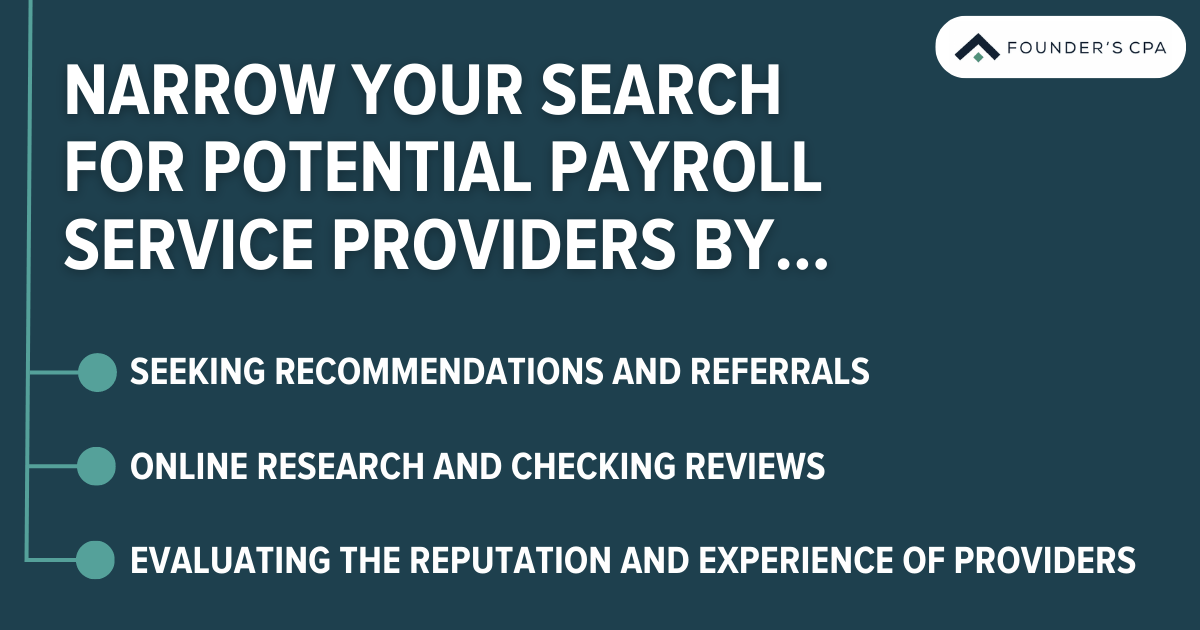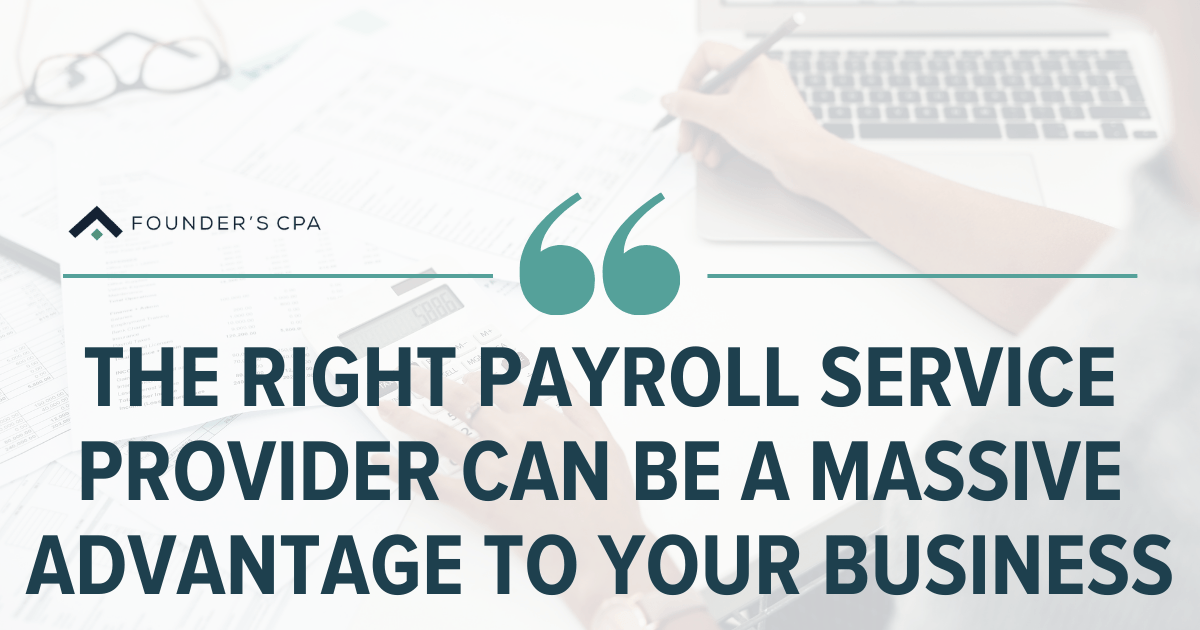What entity type is best for my startup?
Are you still doing payroll in-house? If so, are you aware of the growing popularity of outsourced payroll services and the advantage they can offer your business?
Outsourcing payroll services lets you concentrate on business development, customer relationship management, and marketing.
If you’re considering engaging these services, you’re not alone. Research by YouGov indicates that 32% of SMEs prefer outsourcing their payroll services over keeping them in-house. Often, it’s also cheaper than keeping it in-house and hiring a full-time payroll person.
This article will help businesses evaluate and select the right outsourced payroll service.

Understanding Your Payroll Needs
The first step in outsourcing anything is understanding your needs, requirements, and nice-to-haves.
Start outlining your needs by focusing on the following:
- The size and complexity of your workforce
- Specific payroll tasks that need outsourcing
- Compliance requirements and tax regulations.
Identifying the size and complexity of your workforce will help you weigh whether to partner with a third party or not. Although a large workforce can come with more tasks, it can make sense to keep payroll in-house. Likewise, it may be better to outsource with a smaller team because the cost of hiring an expert might be too great.
Additionally, consider the complexity of compliance and tax and other regulations in your area. Weighing these costs against your budget may help you determine whether to outsource your payroll and other accounting services.
Researching Potential Payroll Service Providers
After deciding to get help with payroll, research potential payroll service providers to choose the right one for you.
The following tips can help you narrow the search:
- Seeking recommendations and referrals
- Online research and checking reviews
- Evaluating the reputation and experience of providers
Contact other businesses in your area or industry and ask for recommendations—preferably those fellow founders who have previously outsourced payroll services. Ask them about their experience and the firms they worked with to understand better if the third parties meet your needs.
In the modern digital world, location is hardly a limiting factor anymore. It’s possible to widen your search and engage professional service providers nationwide. Most providers will have reviews and comments to let you know their service quality.
After identifying prospective service providers, you must evaluate their reputation and experience. Contact customer service to analyze their responsiveness, then ask questions like:
- How do they handle taxes?
- Is it cloud-based?
- Will it end with manual workarounds?
- How long have they been in operation?
- How do they ensure security for sensitive data?
Core Features and Offerings
Once you’ve narrowed the list to a few potential payroll service providers, it’s time to delve into more details.
Federal payroll regulations apply whether you have one or one thousand employees. Payroll mistakes can be inconvenient, costly, and shake your employees’ confidence in your ability to run a business.
Some critical aspects to assess include the following:
- Payroll processing and calculation accuracy
- Tax management and compliance support
- Employee self-service options
- Integration with accounting and HR systems
- Time and attendance tracking capabilities
While research online is essential, a referral from a peer could be the best option for learning the intricacies of an outsourced payroll services provider. This personal contact helps you understand an agency’s nitty-gritty before partnering with it.
Scalability and Flexibility
After identifying the key features and offerings you need, consider how the services will integrate into your business now AND in the future.
- Can the service provider grow with your business?
- What are the options for adding or removing services?
- Is the provider equipped to handle seasonal or fluctuating workforce demands?
Some businesses don’t plan to grow, and that’s fine. However, those who do should honestly assess how the service provider can keep up. The onboarding process can be lengthy due to the complexities of payroll. You won’t want to switch providers every year or two because you’ve outgrown them.
Pricing and Cost Transparency
The cost may be the most significant factor for not using outsourced payroll services. Before signing a long-term service agreement with a payroll service provider, ensure you have transparency about the pricing structure.
Different firms charge differently. Some charge per employee and some per payslip. Still, others require a flat fee or some combination of all three.
Also, understanding potential additional fees, like setup fees or penalties, will help you assess the cost of engaging an outsourced payroll service provider.

Making the Final Decision for Outsourced Payroll Services
After calculating and comparing services against the cost, it’s time to decide on outsourced payroll services for your business. Use the steps above to weigh each potential payroll service provider’s pros and cons, offerings, and critical features to select the most promising for your business.
Remember to source information for your decision from various mediums. Ask for recommendations from other businesses, check reviews and customer feedback on service providers’ websites, and even request a contact from a satisfied customer.
The right payroll service provider can be a massive advantage. It can decrease your administrative load and give you more time and energy to focus on activities that push your business forward. Plus, putting payroll in the hands of an expert can reduce the risk that you miss a critical regulation change.
A smooth and successful transition to outstanding outsourced payroll services requires you to take proactive steps. If you have questions about getting started and choosing the right provider, contact our finance experts at Founder’s CPA today.
Aug 10, 2023 3:41:00 PM



.jpg?width=500&height=500&name=Untitled%20design%20(1).jpg)